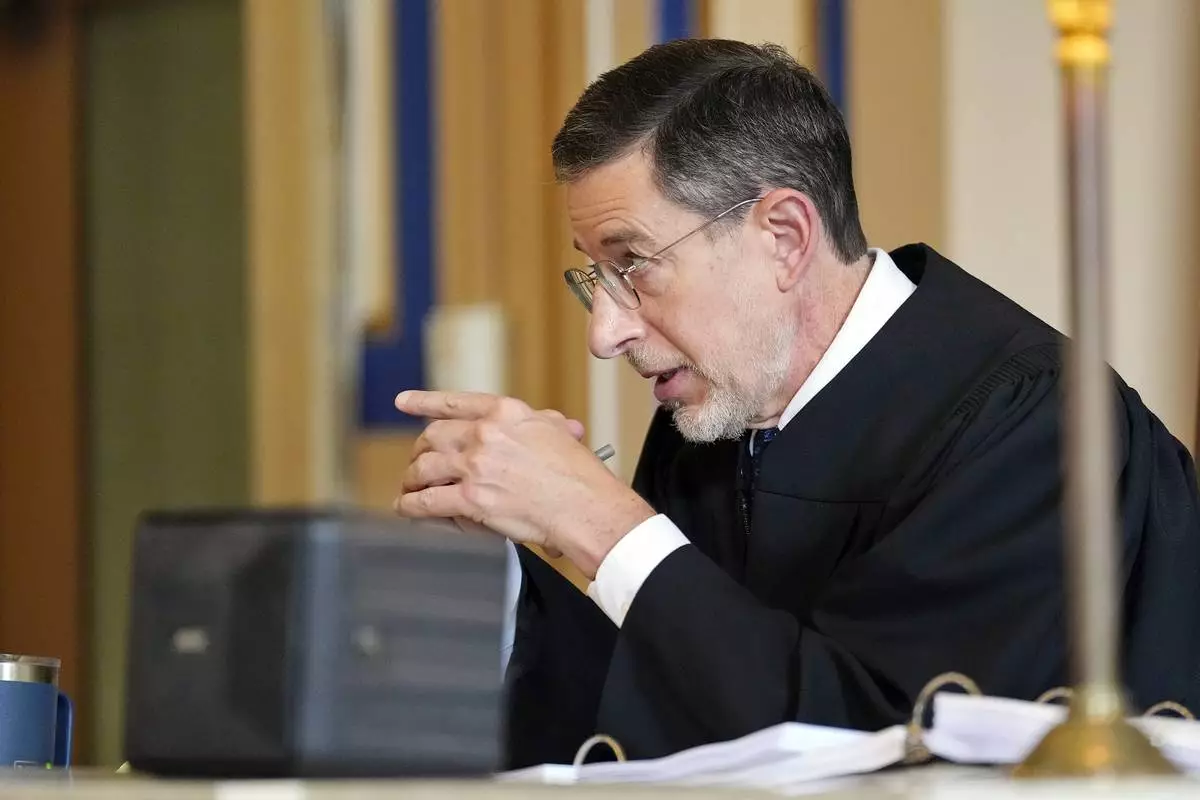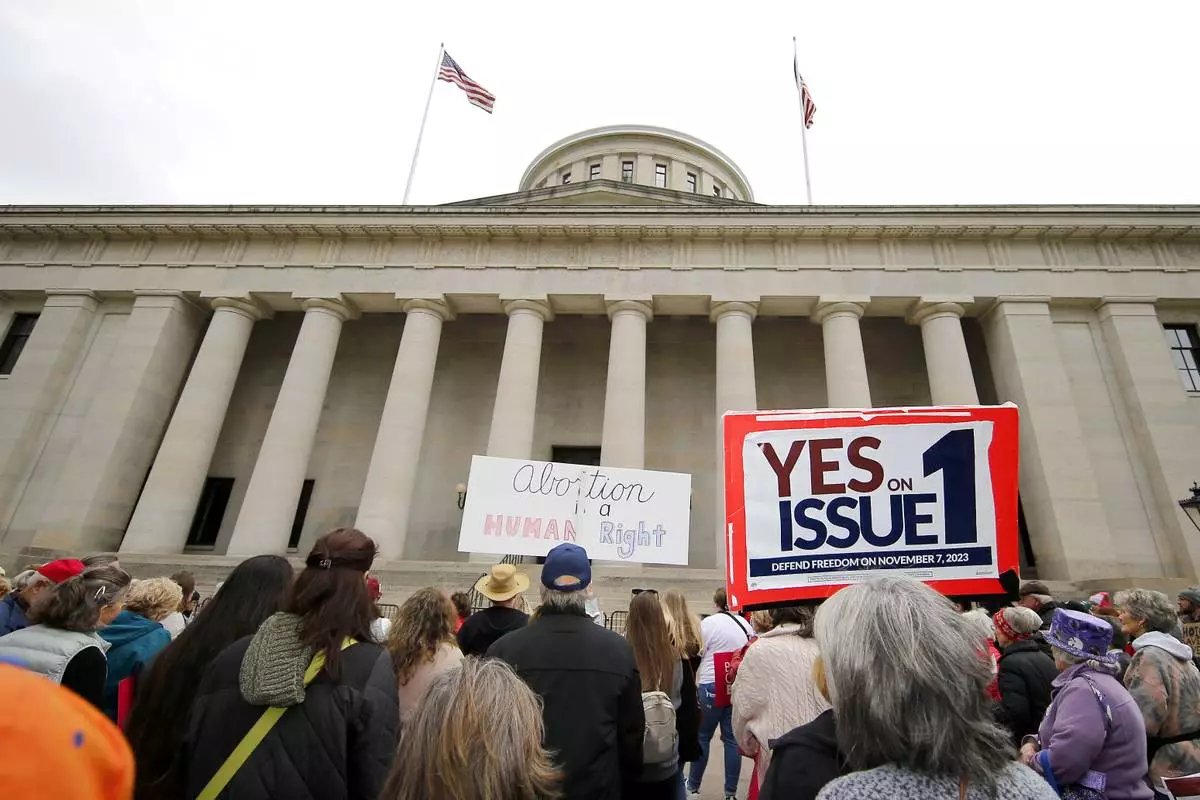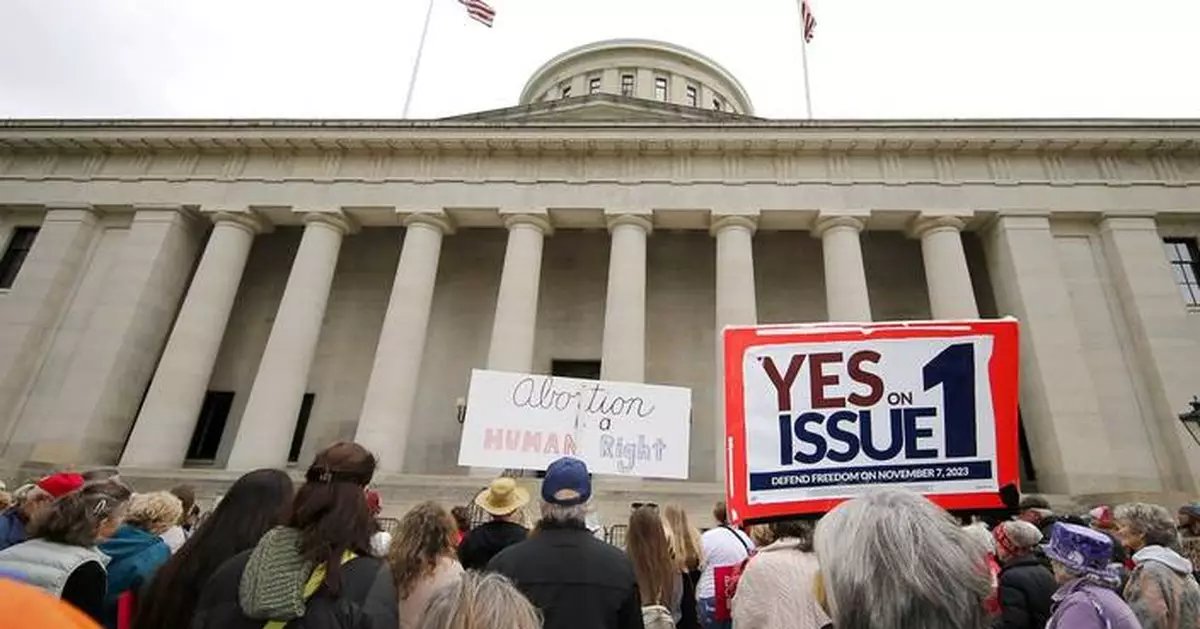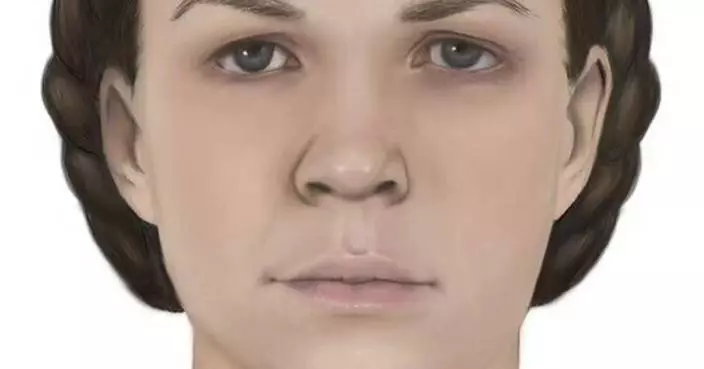COLUMBUS, Ohio (AP) — The most far-reaching of Ohio’s laws restricting abortion was struck down on Thursday by a county judge who said last year’s voter-approved amendment enshrining reproductive rights renders the so-called heartbeat law unconstitutional.
Enforcement of the 2019 law banning most abortions once cardiac activity is detected — as early as six weeks into pregnancy, before many women know they’re pregnant — had been paused pending the challenge before Hamilton County Common Pleas Judge Christian Jenkins.
Jenkins said that when the U.S. Supreme Court overturned Roe v. Wade and returned power over the abortion issue to the states, “Ohio’s Attorney General evidently didn’t get the memo.”
The judge said Republican Attorney General Dave Yost's request to leave all but one provision of the law untouched even after a majority of Ohio’s voters passed an amendment protecting the right to pre-viability abortion “dispels the myth" that the high court's decision simply gives states power over the issue.
“Despite the adoption of a broad and strongly worded constitutional amendment, in this case and others, the State of Ohio seeks not to uphold the constituional protection of abortion rights, but to diminish and limit it,” he wrote. Jenkins said his ruling upholds voters' wishes.
Yost's office said it was reviewing the order and would decide within 30 days whether to appeal.
“This is a very long, complicated decision covering many issues, many of which are issues of first impression,” the office said in a statement, meaning they have not been decided by a court before.
Jenkins’ decision comes in a lawsuit that the ACLU of Ohio, Planned Parenthood Federation of America and the law firm WilmerHale brought on behalf of a group of abortion providers in the state, the second round of litigation filed to challenge the law.
“This is a momentous ruling, showing the power of Ohio’s new Reproductive Freedom Amendment in practice,” Jessie Hill, cooperating attorney for the ACLU of Ohio, said in a statement. “The six-week ban is blatantly unconstitutional and has no place in our law.”
An initial lawsuit was brought in federal court in 2019, where the law was first blocked under the landmark 1973 Roe v. Wade decision. It was briefly allowed to go into effect in 2022 after Roe was overturned. Opponents of the law then turned to the state court system, where the ban was again put on hold. They argued the law violated protections in Ohio’s constitution that guarantee individual liberty and equal protection, and that it was unconstitutionally vague.
After his predecessor twice vetoed the measure citing Roe, Republican Ohio Gov. Mike DeWine signed the 2019 law once appointments by then-President Donald Trump had solidified the Supreme Court’s conservative majority and raised hopes among abortion opponents.
The Ohio litigation has unfolded alongside a national upheaval over abortion rights that followed the Dobbs decision that overturned Roe, including constitutional amendment pushes in Ohio and a host of other states. Issue 1, the amendment Ohio voters passed last year, gives every person in Ohio “the right to make and carry out one’s own reproductive decisions.”
Yost acknowledged in court filings this spring that the amendment rendered the Ohio ban unconstitutional, but sought to maintain other elements of the 2019 law, including certain notification and reporting provisions.
Jenkins said retaining those elements would have meant subjecting doctors who perform abortions to felony criminal charges, fines, license suspensions or revocations, and civil claims of wrongful death — and requiring patients to make two in-person visits to their provider, wait 24 hours for the procedure and have their abortion recorded and reported.

FILE - Hamilton County Common Pleas Court Judge Christian Jenkins presides during arguments on whether to extend a block Ohio's law banning virtually all abortions on a more permanent basis, Friday, Oct. 7, 2022, in Cincinnati. (Sam Greene/The Cincinnati Enquirer via AP, File)

FILE - Supporters of Issue 1 attend a rally for the Right to Reproductive Freedom amendment held by Ohioans United for Reproductive Rights at the Ohio State House in Columbus, Ohio, Oct. 8, 2023. (AP Photo/Joe Maiorana, File)
DENVER (AP) — Colorado funeral home owners accused of misspending nearly $900,000 in pandemic relief funds and living lavishly, all while allegedly storing 190 decaying bodies in a building and sending grieving families fake ashes, pleaded guilty Thursday to federal fraud charges centered around defrauding customers.
Jon and Carie Hallford each pleaded guilty to one count of conspiracy to commit wire fraud. The plea agreement, which stipulates that prosecutors will not request over 15 years imprisonment, still has to be approved by the judge.
The owners of Return to Nature Funeral Home, about an hour’s drive south of Denver, had each been charged with 14 other federal offenses related to defrauding the U.S. government and the funeral home’s customers, which would be dismissed under the plea agreement. More than 200 criminal counts are already pending against them in Colorado state court, including for corpse abuse and forgery.
Assistant U.S. Attorney Tim Neff said after the hearing that the plea agreement includes both Hallfords admitting to COVID-19 fraud and committing fraud against customers, which will play a role in sentencing.
The Hallfords used the pandemic aid and customers’ payments to buy a GMC Yukon and Infiniti that together were worth over $120,000, laser body sculpting, trips to California, Florida and Las Vegas, $31,000 in cryptocurrency and luxury items at stores like Gucci and Tiffany & Co., according to court documents.
Jon Hallford is being represented by the federal public defenders office, which does not comment on cases. Calls and emails to Carie Hallford’s lawyer in the federal case have not been returned, and her attorney in the state case, Michael Stuzynski, declined to comment.
The 190 corpses were discovered in 2023 in a bug-infested building owned by Return to Nature in Penrose, a small town southwest of Colorado Springs. The Hallfords allegedly stashed bodies as as far back as 2019, at times stacking them on top of each other, and in two cases buried the wrong body, according to court documents.
Elisabeth Ostly thought that surely her father’s body wasn’t part of the discovery. Then law enforcement arrived on her doorstep.
Ostly handed over what she had thought for almost a year were her fathers’ ashes. It hit the reset button on her grieving process. In therapy, Ostly now works on “how to be at peace. How to not be furious, how to not let rage just live in my every moment,” she said outside the courtroom Thursday, holding a photo of her father and wiping tears from her eyes.
An investigation by The Associated Press found that the Hallfords likely sent fake ashes and fabricated cremation records to families who did business with them. Court documents allege that the dust inside some of the bags was dry concrete, not the cremated remains of lost loved ones.
The discovery devastated relatives of the deceased, who began learning that their family members' remains weren't in the ashes that they ceremonially spread or held tight but were still languishing in a building. The stories prompted Colorado lawmakers to patch the state's lax funeral home regulations in 2024, requiring routine inspections of facilities and licensing for funeral home roles.
Crystina Page, whose son’s body was left languishing in the funeral home after his death in 2019, spoke in court Thursday, saying she understood the plea deal was as close to justice as she was going to get, but that it “only scratches the surface of the atrocities they committed.”
Page then described the condition of her son's body by the time she learned he was included in the grim discovery.
“He had lost 60% of his bodyweight laying at the bottom of a pile of bodies," she said to the judge. "Rats and maggots ate his face.”
Bedayn is a corps member of The Associated Press/Report for America Statehouse News Initiative. Report for America is a nonprofit national service program that places journalists in local newsrooms to report on undercovered issues.

FILE - This combination of booking photos provided by the Muskogee County, Okla., Sheriff's Office shows Jon Hallford, left, and Carie Hallford, owners of Return to Nature Funeral Home. (Muskogee County Sheriff's Office via AP, File)

FILE - A hearse and debris can be seen at the rear of the Return to Nature Funeral Home, Oct. 5, 2023, in Penrose, Colo. (Jerilee Bennett/The Gazette via AP, File)













